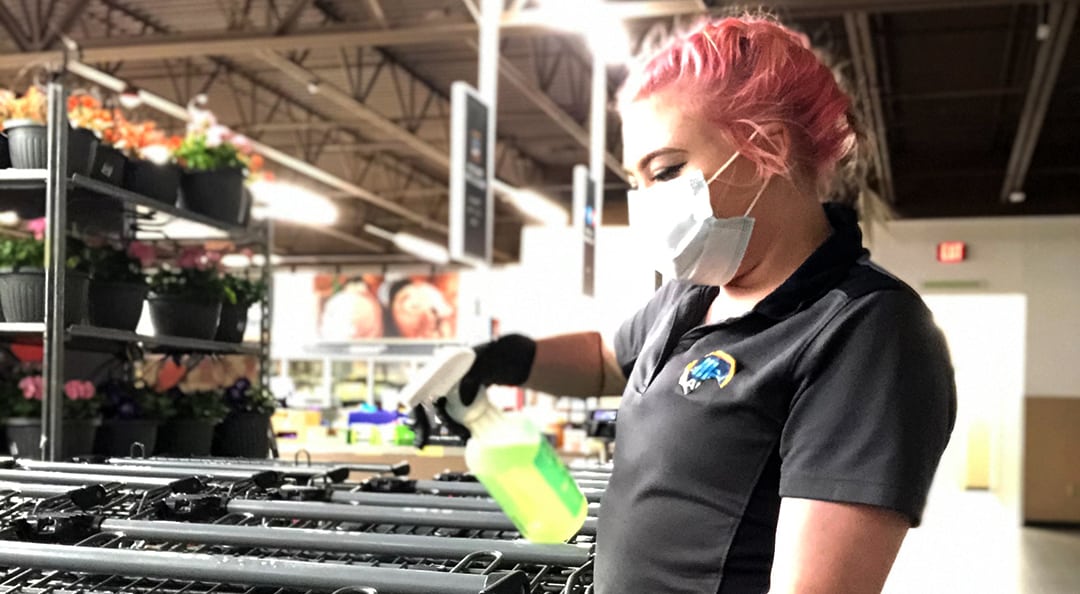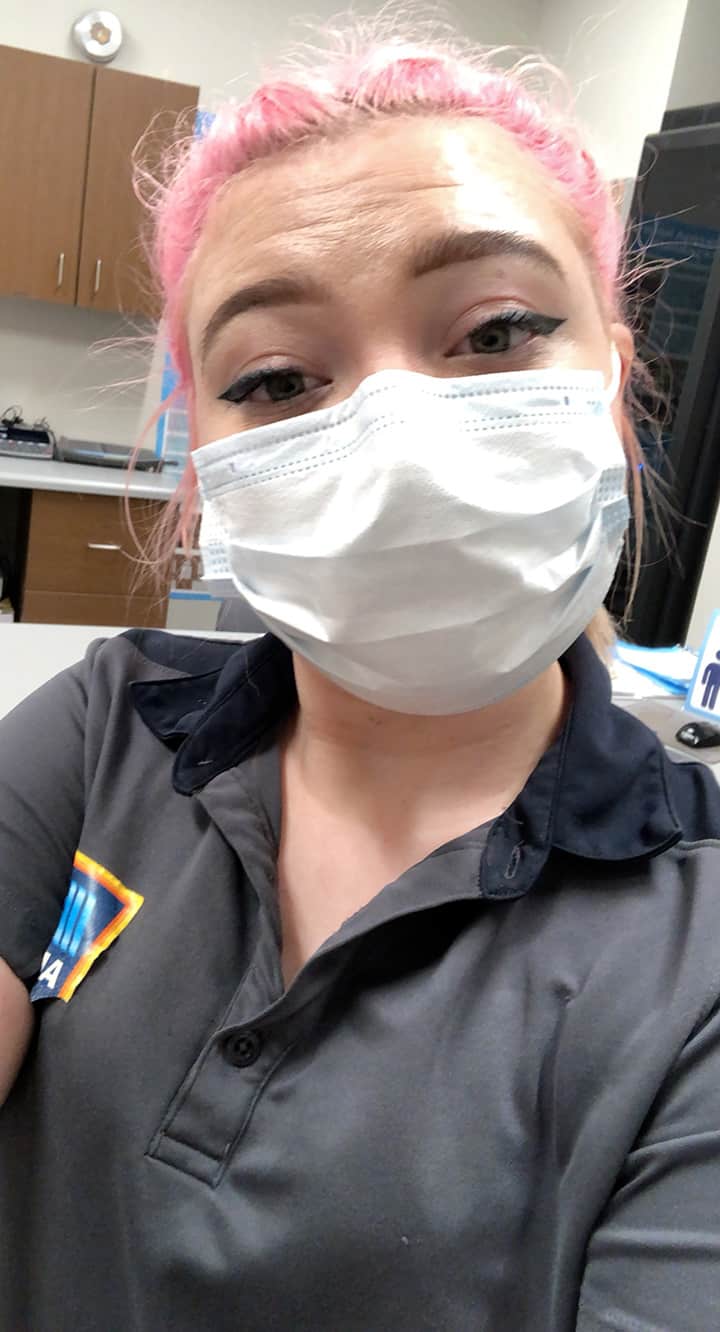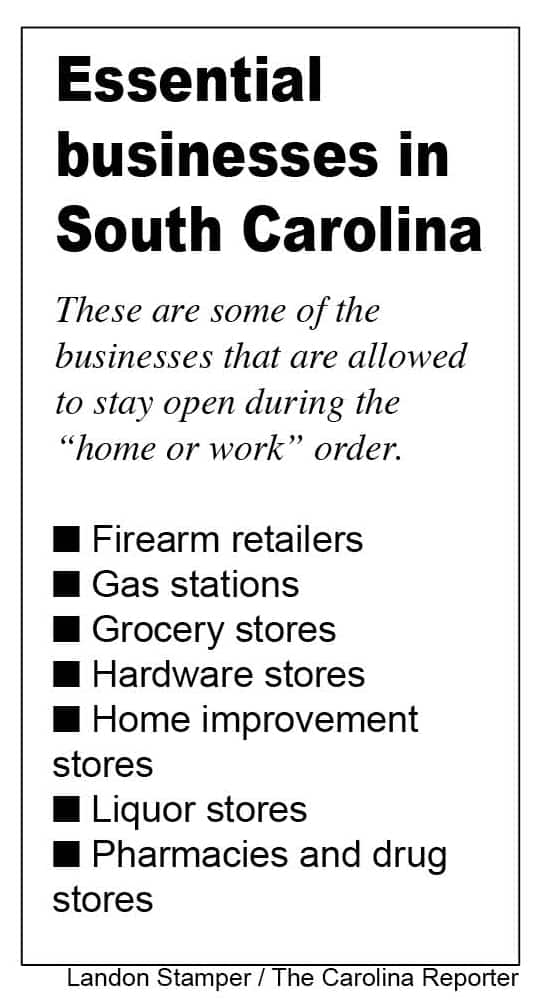Emily Schultz sprays down carts at Aldi with sanitizer after customers use them. This requirement was put in place to combat the spread of coronavirus. Credit: Emily Schultz.
Emily Schultz has a routine when she leaves her job at Aldi on Platt Springs Road in Lexington every day. She washes her hands in the break room, uses wipes to disinfect her car steering wheel and door handles and then washes her hands again when she gets home.
Schultz is a shift manager at the discount grocery store. Grocery stores have been deemed essential businesses during the coronavirus pandemic and are allowed to stay open. Schultz says her days have gotten a lot busier.
“It’s basically just damage control,” Schultz said. “Just kind of making sure the store’s constantly clean, making sure everybody feels safe and comfortable, making sure we have the right amount of people in the store.”
Per new COVID-19 era corporate guidelines, there can only be five customers per 1,000 square feet. For this location, that means there can be a maximum of 60 people inside, including employees.
When Schultz clocks in, her first task of the day is counting people.
“When I first get there, I have to do a walk of the entire store and count how many people are in the store,” Schultz said. “And then there’s also somebody standing outside at the front, counting the people that come in and out and cleaning the carts. So, I have to confirm it with them and make sure we have the same count.”
The store’s touch points have to be cleaned each hour, which Schultz says includes the pinheads on the card readers, the registers, door handles, freezer doors and everything in the office and break room.
For the most part, Schultz has seen customers complying with new social distancing rules. However, she said shoppers have two main frustrations: item limits and return limits. While most grocery stores have limits on items like bread and toilet paper, Aldi goes beyond that.
“We have limits on all of our canned goods, all of our meat, eggs, milk, baby formula, sugar, flour,” Schultz said. “We have a lot.”
With the return limit, the store is only accepting returns on items that have a food quality issue.
“If they bought some chips for a barbecue that they ended up not needing, I have to tell them that unfortunately, we’re not accepting returns on that right now for safety reasons,” Schultz said. “People have been wanting to burn me at the stake for it.”
But, Schultz said there have been other customers who have thanked the workers and expressed appreciation for them working during the pandemic. While she’s glad she’s still able to work, she definitely has some worries.
“I’m very lucky that I still do have my job, and I haven’t felt any kind of financial uncertainty,” Schultz said. “If anything, we’re busier than normal, so I’m getting more hours. But, it does kind of make me nervous, because that just puts me at greater risk than people who aren’t having to go to work everyday.”





